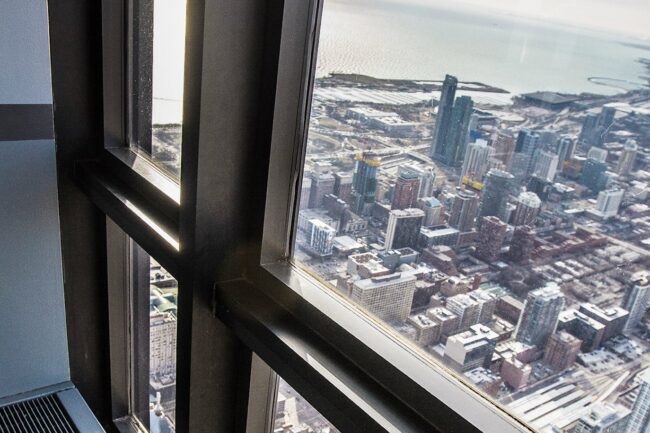When it comes to enhancing the aesthetics and functionality of your vehicle or home, tinted glass is a popular choice. Tinted windows not only add a touch of sophistication but also provide practical benefits like UV protection, heat reduction, and increased privacy. Whether you’ve recently invested in tinted windows or have enjoyed their benefits for a while, it’s crucial to understand that proper maintenance is key to preserving their effectiveness and appearance.
We’ll delve into the world of tinted glass maintenance, offering valuable tips and insights to ensure your tinted windows stay in pristine condition. From the do’s and don’ts of cleaning to protective measures against common issues, we’ll guide you through the essential steps to keep your tinted glass looking sharp and performing optimally. Let’s embark on a journey to discover the secrets of caring for your tinted glass and maintaining the allure of your windows for years to come.
Understanding Tinted Glass Basics
Tinted glass is a specially treated type of glass that has been coated or infused with a thin layer of tinting material, typically a film or dye. This tinting material serves several purposes, including reducing glare, blocking harmful UV rays, and enhancing privacy by decreasing visibility from the outside. Tinted glass can be applied to various surfaces, including windows in vehicles, homes, and commercial buildings.
Importance of Proper Maintenance
Proper maintenance of tinted glass is essential to ensure its longevity and effectiveness. Neglecting maintenance can lead to issues such as fading, discoloration, scratches, and reduced visibility. By implementing a regular maintenance routine, you can preserve the aesthetic appeal and functional benefits of your tinted glass for years to come.
- Preserves Aesthetic Appeal: Proper maintenance of tinted glass ensures it retains its visual appeal, enhancing the overall appearance of your vehicle or property. Regular cleaning and care prevent the accumulation of dirt, grime, and other unsightly substances, keeping your tinted windows looking clean and attractive.
- Ensures Longevity: By addressing minor issues promptly and implementing preventive measures, proper maintenance extends the lifespan of tinted glass. This proactive approach prevents degradation, such as fading, discoloration, or peeling of the tinting material, ensuring your windows last for years to come.
- Protects Functional Benefits: Tinted glass offers various functional benefits, including UV protection, heat reduction, and increased privacy. Proper maintenance preserves these benefits by safeguarding the integrity of the tinting material and ensuring it continues to perform effectively over time.
- Prevents Costly Repairs: Neglecting maintenance can lead to more significant problems requiring costly repairs or replacements. By investing time and effort into regular maintenance, you can prevent issues from escalating, saving money in the long run and avoiding the inconvenience of extensive repairs.
- Enhances Safety and Visibility: Clear and well-maintained tinted glass contributes to optimal visibility while driving or navigating your property. Proper maintenance removes obstructions such as dirt, water spots, or residue, ensuring unimpeded visibility and promoting safety for occupants and pedestrians.
Cleaning Dos and Don’ts
When cleaning tinted glass, it’s crucial to use gentle cleaning techniques to avoid damaging the tinting material. Do use a soft, non-abrasive cloth or sponge and mild soap or specialized glass cleaner. Don’t use abrasive cleaners, harsh chemicals, or rough scrubbing tools, as these can scratch or degrade the tinting material.
Choosing the Right Cleaning Products
Selecting the right cleaning products is key to maintaining tinted glass effectively. Look for cleaners that are specifically formulated for use on tinted surfaces and free from ammonia or other harsh chemicals that can damage the tinting material. Additionally, consider using products that offer UV protection to further safeguard your tinted glass from sun damage.
Protecting Against Scratches
Scratches can detract from the appearance of tinted glass and compromise its functionality. To prevent scratches, avoid using abrasive materials or rough handling when cleaning or interacting with tinted glass. Consider applying a protective coating or film to provide an additional layer of defense against scratches and abrasions.
Avoiding Harsh Chemicals
Harsh chemicals can degrade the tinting material on glass surfaces, leading to discoloration, peeling, or other forms of damage. When cleaning tinted glass, steer clear of cleaners containing ammonia, bleach, or other abrasive chemicals. Opt instead for gentle, non-toxic cleaning solutions that are safe for use on tinted surfaces.
- Choose Gentle Cleaning Solutions: Opt for mild, non-abrasive cleaning solutions specifically formulated for use on tinted glass. These gentle cleaners effectively remove dirt and grime without compromising the integrity of the tinting material.
- Read Labels Carefully: When selecting cleaning products, carefully read the labels to ensure they are free from harsh chemicals such as ammonia, bleach, or abrasives. These chemicals can cause damage to the tinting material, leading to discoloration or peeling over time.
- Use Soft Cleaning Tools: Avoid abrasive materials such as rough sponges or scrub brushes that can scratch or degrade the tinted glass. Instead, choose soft microfiber cloths or gentle sponges to clean the surface without causing damage to the tinting film.
- Test in inconspicuous areas: Before using any new cleaning product or technique on your tinted glass, it’s wise to test it in a small, inconspicuous area first. This allows you to ensure compatibility and assess any potential adverse effects before applying it to the entire surface.
Handling Tinted Glass with Care
Tinted glass should be handled with care to prevent damage to the tinting material. When opening or closing windows or doors with tinted glass, avoid slamming or applying excessive force. Be mindful of sharp objects or abrasive materials that could scratch or puncture the tinting film.
Dealing with Stubborn Stains
Stubborn stains on tinted glass can be challenging to remove without damaging the tinting material. For tough stains, try using a mixture of mild soap and water or a specialized glass cleaner designed for tinted surfaces. Apply the cleaner to the stained area and gently scrub with a soft cloth or sponge until the stain is lifted.
 Preventing Fading and Discoloration
Preventing Fading and Discoloration
Exposure to sunlight can cause tinted glass to fade or become discolored over time. To prevent fading, consider installing UV-blocking window films or applying a protective coating to your tinted glass. Additionally, use curtains, blinds, or window shades to reduce direct sunlight exposure during peak hours.
Regular Inspection Tips
Regularly inspecting tinted glass for signs of damage or wear is essential for proactive maintenance. Look for scratches, chips, or bubbling in the tinting material, as well as any areas of discoloration or fading. Addressing issues promptly can help prevent further damage and prolong the lifespan of your tinted glass.
- Schedule Routine Inspections: Set aside time periodically to inspect your tinted glass for signs of damage or wear. Regular inspections allow you to identify issues early on, enabling prompt action to address any problems before they worsen and require more extensive repairs.
- Check for Scratches and Chips: During inspections, closely examine the surface of the tinted glass for scratches, chips, or other forms of damage. Even minor imperfections can compromise the integrity of the tinting material and detract from the appearance of your windows, warranting attention and potential repair.
- Assess Tinting Material Integrity: Evaluate the condition of the tinting material itself, looking for signs of peeling, bubbling, or discoloration. These indicators suggest potential issues with the adhesive or degradation of the tinting film, requiring inspection and possible remediation to prevent further deterioration.
- Monitor for Water Damage: Pay attention to areas where water may accumulate, such as window sills or edges of the tinted glass. Water damage can lead to mold growth, corrosion, or degradation of the tinting material. Regularly inspect these areas and address any water-related issues promptly to mitigate potential damage.
Addressing Water Spots and Residue
Water spots and residue can accumulate on tinted glass, detracting from its appearance and clarity. To remove water spots, use a mixture of vinegar and water or a specialized glass cleaner formulated for hard water stains. Apply the cleaner to the affected areas and gently wipe away the residue with a soft cloth.
Maintenance Schedule Recommendations
Establishing a regular maintenance schedule for tinted glass can help ensure consistent upkeep and optimal performance. Depending on factors such as location, climate, and usage, consider cleaning and inspecting tinted glass every few months or as needed to keep it in top condition.
Professional Maintenance Services
For more extensive maintenance tasks or repairs, consider seeking professional assistance from a glass tinting specialist. Professional maintenance services may include deep cleaning, scratch removal, tinting film replacement, or other specialized treatments to restore and preserve tinted glass.
DIY Repair Tips for Minor Issues
For minor issues such as small scratches or surface blemishes, there are DIY repair kits available that can help conceal imperfections and restore the appearance of tinted glass. Follow the manufacturer’s instructions carefully and exercise caution to avoid causing further damage during the repair process.
Maximizing Longevity and Performance
By following these maintenance tips and adopting proactive care practices, you can maximize the longevity and performance of your tinted glass. Regular cleaning, gentle handling, and protective measures can help preserve the aesthetic appeal and functional benefits of tinted glass for years to come, ensuring continued enjoyment and satisfaction with your investment.
As we conclude our journey into the world of tinted glass maintenance, it’s evident that proper care is essential for preserving the beauty and functionality of your tinted windows. By understanding the basics of tinted glass, implementing effective cleaning techniques, and taking proactive measures to prevent damage, you can ensure that your tinted glass remains in pristine condition for years to come.
Ready to maintain your tinted glass with confidence? For expert service and top-quality products, turn to Quality Auto Glass Tint Inc. With over 30 years of experience in Salida, CA, they’re certified for automotive and residential/commercial window film installations. As authorized Xpel and Ceramic Pro dealers, they specialize in tinting, paint protection, ceramic coatings, and auto glass services. Call (209) 900-8269 or email Support@qualityautoglasstint.com to schedule your consultation today!




